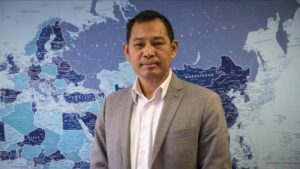What is Activism?
TRANSCEND MEMBERS, 11 Jan 2021
Maung Zarni – TRANSCEND Media Service
4 Jan 2021
What is activism?
For 30 years, I have asked myself that perennial question.
Now that a New Year has dawned, I must ask and answer it, again.
Activism is Conscience, triggered by acute pain,
The pain of witnessing and living the state of the troubled world.
Activism is Heart, pumping empathy for “the wretched of the earth”,
From genocide victims of China, Myanmar, Sudan and the Middle East
From refugee babies and black/brown toddlers literally washed up on the affluent shores of Europe
From asylum-seekers of the other Americas and their caged children, separated by the rich America of white-settlers
From Myanmar migrant workers in semi-serfdom across ASEAN, being framed as Covid-spreaders
From destitute working-class whites and criminalized Black Lives pitted against one another
From 1.5 billion Muslims demonized in the gaze of paranoid states and racialized societies.
And my list of human wrongs goes on and on and on.
Activism is Disgust, erupting against empty rhetoric of human rights.
Activism is Rage, against Injustices rechannelled.
Activism is Principles, being lived.
Activism is Scholarship, socially engaged.
Activism is Intellect, politically applied.
Activism is Art, inspired by humans in pain.
Activism is Self, making connections.
Activism is Individual, acting in solidarity.
Activism is Humans, building communities and locking arms.
Activism is Brotherhood, universalized.
Activism is Sisterhood, pursued.
Activism is Love, shared.
Activism is Energy, recycled generations after generations.
Activism is Way of Life, Mode of Existence.
Activism is Hope, communalized.
Activism is Vision, humanized.
Activism is Kindness, randomized.
Activism is Humanity, sensitised.
Activism is Community, striving to end inhumanity, injustices, exploitation, and oppression.
___________________________________________
A Buddhist humanist from Burma, Maung Zarni is a member of the TRANSCEND Network for Peace Development Environment, former Visiting Lecturer with Harvard Medical School, specializing in racism and violence in Burma and Sri Lanka, and Non-resident Scholar in Genocide Studies with Documentation Center – Cambodia. Zarni s the co-founder of FORSEA, a grass-roots organization of Southeast Asian human rights defenders, coordinator for Strategic Affairs for Free Rohingya Coalition, and an adviser to the European Centre for the Study of Extremism, Cambridge. Zarni holds a PhD (U Wisconsin at Madison) and a MA (U California), and has held various teaching, research and visiting fellowships at the universities in Asia, Europe and USA including Oxford, LSE, UCL Institute of Education, National-Louis, Malaya, and Brunei. He is the recipient of the “Cultivation of Harmony” award from the Parliament of the World’s Religions (2015). His analyses have appeared in leading newspapers including the New York Times, The Guardian and the Times. Among his academic publications on Rohingya genocide are The Slow-Burning Genocide of Myanmar’s Rohingyas (Pacific Rim Law and Policy Journal), An Evolution of Rohingya Persecution in Myanmar: From Strategic Embrace to Genocide, (Middle East Institute, American University), and Myanmar’s State-directed Persecution of Rohingyas and Other Muslims (Brown World Affairs Journal). He co-authored, with Natalie Brinham, Essays on Myanmar Genocide.
Tags: Activism, Nonviolence, Nonviolent Action, Nonviolent communication, Solidarity
This article originally appeared on Transcend Media Service (TMS) on 11 Jan 2021.
Anticopyright: Editorials and articles originated on TMS may be freely reprinted, disseminated, translated and used as background material, provided an acknowledgement and link to the source, TMS: What is Activism?, is included. Thank you.
If you enjoyed this article, please donate to TMS to join the growing list of TMS Supporters.

This work is licensed under a CC BY-NC 4.0 License.
